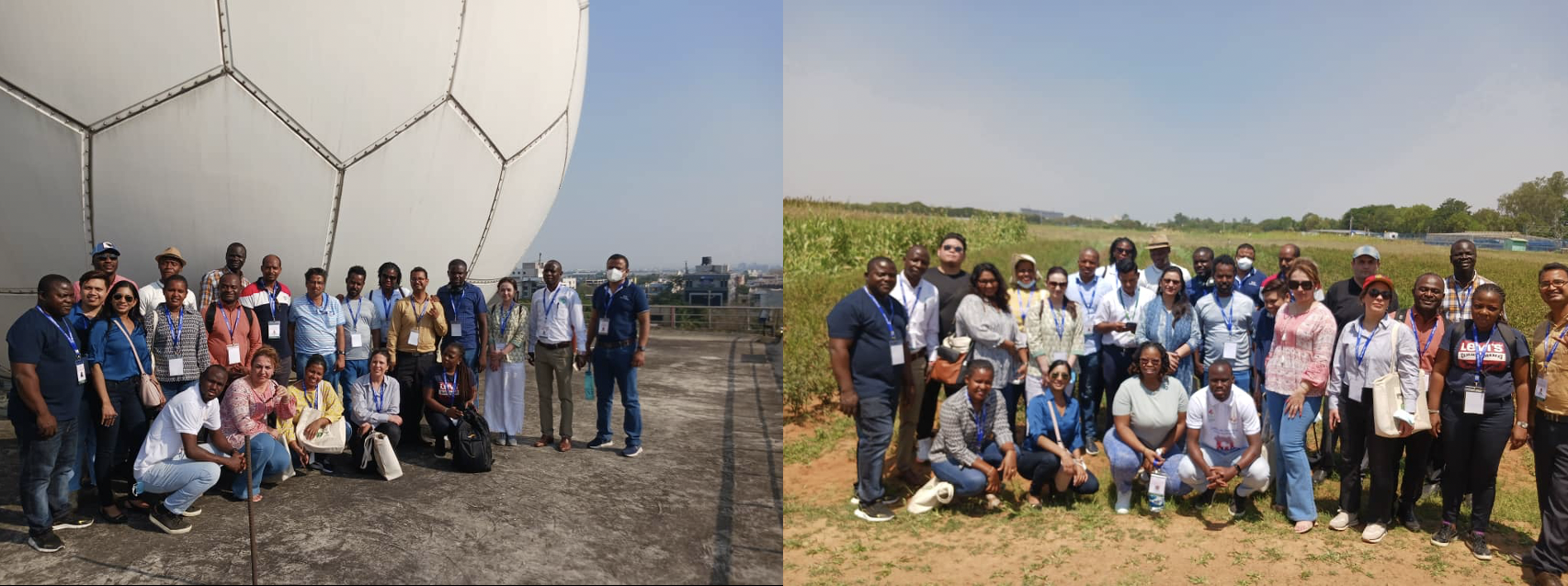The Philippine Council for Agriculture, Aquatic and Natural Resources Research and Development of the Department of Science and Technology (DOST-PCAARRD) participated in the training on “Integrated Approach to Climate Change Policy Development and Financing for Effective Implementation of the Sustainable Development Goals,” on March 20 to April 1, 2023 in Hyderabad, India.
The training was hosted by the Ministry of External Affairs of India, the Indian Technical Economic Cooperation (ITEC), and Environment Protection Training and Research Institute (EPTRI).
The training aimed to equip the participants to think on SDG13 (Climate Action) from the lens of integrated socio-economic perspective to affect the implementation of the 2030 Agenda on climate change.
It was participated by 27 participants from 18 countries such as Botswana, Côte d’Ivoire, Kingdom of Eswatini, Ethiopia, Guinea, Guyana, Kazakhstan, Kenya, Mozambique, Nepal, Niger, Nigeria, Philippines, South Sudan, Sri Lanka, Tajikistan, Trinidad and Tobago, and Tunisia.
There were two representatives from the Philippines -- Mr. John Benrich M. Zuniga, alternate Industry Strategic S&T Program (ISP) manager for Climate Change of DOST-PCAARRD and Mr. Aaron Ashley Diaz from the Development Bank of the Philippines (DBP).

Participants of the training course on climate change and SDGs (left) and Mr. John Benrich M. Zuniga receiving the certificate from the Director General of EPTRI, Smt. A. Vani Prasad, IAS (right)
Training discussions started with the reintroduction of fundamentals of Climate Change and SDGs including the relevant international agreements and frameworks. The presentations were focused on climate change and its impacts in different ecosystems as well as nature-based solutions for adaptation and mitigation.
There was also an in-depth discourse on how to access international, regional, and private financing mechanisms for climate change programs/projects. Other topics discussed include energy transition in developing countries, economics of climate change, climate action in policy and governance, and gender considerations in climate change.
Several Indian experts such as professors, economists and scientists from various fields facilitated the discussions. An open forum was allotted at the end of each topic, which enabled the participants to learn from the strategies of other countries as well as share their own successes and noteworthy initiatives.
A special field trip was arranged at the International Crops Research Institute for Semi-Arid Tropics (ICRISAT) where research advancements on the propagation of several crops with lesser rainfall and poor soil conditions were showcased. The participants also visited the India Meteorological Department in Hyderabad and their state-of-the-art radar and equipment that provide close to accurate weather forecasts. Participants were also toured around the well-preserved Kasu Brahmananda Reddy (KBR) National Park which lies within the city and provides refuge to different wildlife species.

Participants visiting the India Meteorological Department in Hyderabad (left) and International Crops Research Institute for Semi-Arid Tropics (ICRISAT) (right
Country presentation by each of the participant was the last part of the training. The presentation from the Philippines revolved on the commitment to the 2030 Agenda and localization of SDG 13 (Climate Action). Based on the submitted Voluntary National Review (VNR), the Philippines is said to be on track in achieving the goals of SDG 13 by 2030. Other mechanisms such as institutional arrangements and the current policy environment for climate change in the Philippines were presented.
Mr. Zuniga highlighted the initiatives of DOST-PCAARRD on Climate Change such as the project on Smarter Approaches to Reinvigorate Agriculture as an Industry in the Philippines (SARAI), protocols for monitoring forest ecosystems, methods for rehabilitating degraded coastal/mangrove habitats, and initiatives on policy research and advocacy.
The training is relevant to DOST-PCAARRD's endeavors, particularly on the S&T Program on Environmental Services - Climate Change. The program seeks to sustain the productivity and competitiveness of the Agriculture, Aquatic, and Natural Resources (AANR) sector amidst changing climate through technologies and initiatives for reliable farm and ecosystem management decisions.
The training has capacitated DOST-PCAARRD technical staff and strengthened the agency’s international linkage and networking.
